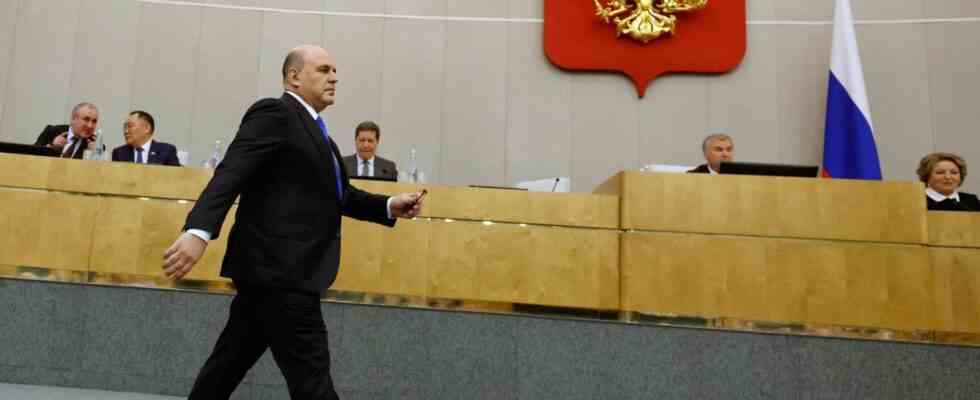In a country where the president decides everything, or almost, the observation seems counter-intuitive. A recent count has confirmed it, however: the Russia of 2022 has been gripped by an unprecedented legislative frenzy. During the year the Duma, the lower house, passed 653 laws, “the largest amount in the history of Parliament, a record since the end of the Soviet Union”in 1991, welcomed its president, Vyacheslav Volodin, during the final session.
This winter session has also taken on the appearance of a frenzied sprint, with votes organized on the chain to ratify legislation deemed to be a priority. On December 21, it was, for example, a law punishing with prison sentences ranging up to life imprisonment for incitement to sabotage – a text tailored to fight against the incessant fires of military recruitment offices – or another officially giving access at the FSB, the Russian security services, to data from taxi applications to trace the movements of citizens.
The same week, three other more symbolic pieces of legislation were passed in quick succession: one prohibited the use of foreign words when their Russian equivalent existed; the other punishes up to five years in prison “public desecration” the ribbon of Saint George, an emblem inherited from tsarism and especially from the Second World War and which has become a symbol of patriotism. The third, adopted for the time being at first reading, recognizes as “extremists” the geographical maps which do not correctly represent the Russian borders – yet quite shifting in the face of the counter-offensives of the Ukrainian army in the territories recently annexed by Moscow.
“Crazy Printer”
Each time, the procedure is done in an accelerated way: enough to give the Duma its nickname for a time forgotten, “the crazy printer”, won after the protest movement of 2011-2012, when the deputies adopted, without even having time to read them, repressive texts prepared by the Kremlin.
The zeitgeist has changed in ten years, but the time is still up for mobilization in the face of internal and external perils. If Vyacheslav Volodin was pleased, on December 26, that 33% of the texts adopted in 2022 relate to social policy, the most important laws are undoubtedly those of a repressive nature.
From March 4, ten days after the launch of the “special military operation” in Ukraine, on February 24, the tone had been set by the adoption of ad hoc laws, punishing the dissemination of “fake news” on the action of the Russian army or “discrediting” the armed forces. These two texts were enough to eliminate the last independent media and silence any challenge to the conflict, with nearly 6,000 judgments handed down, sometimes accompanied by long prison sentences for political opponents.
You have 65.83% of this article left to read. The following is for subscribers only.

